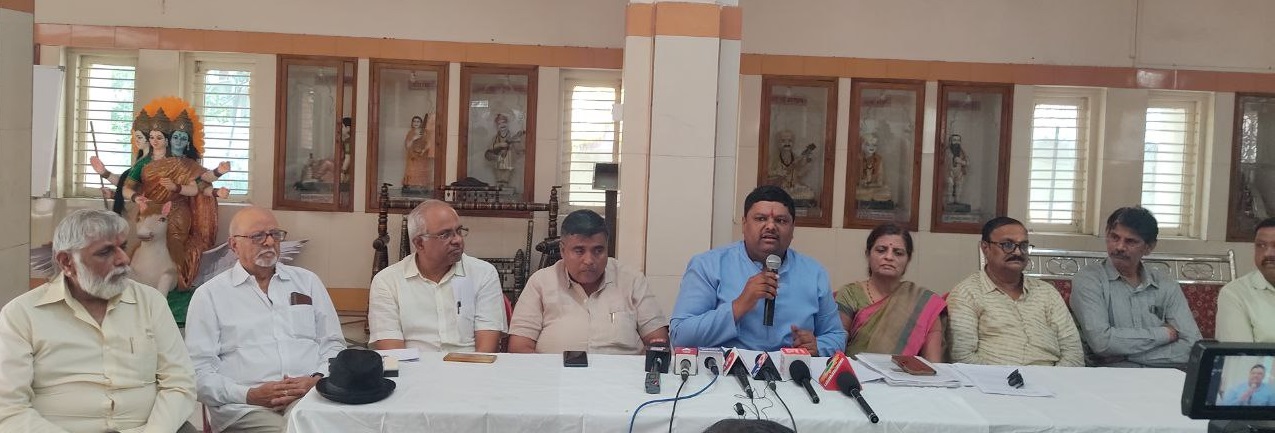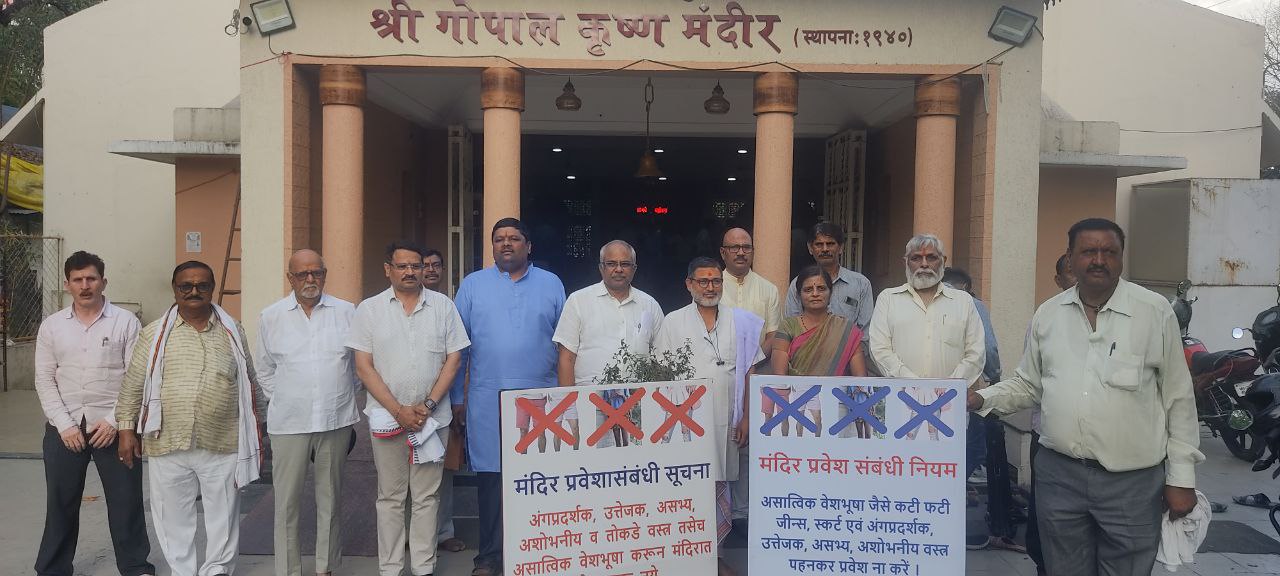
In the year 2020, Maharashtra Government implemented dress code in all Government offices in the State. Besides, the dress code is applicable in many temples, gurdwaras, churches, mosques and other places of worship, private establishments, schools-colleges, Courts, Police, etc. in the country. On the same lines, in order to preserve the sanctity, manners and culture of the temples, during the meeting of the Maharashtra Mandir Mahasangh the trustees of four temples in Nagpur District have decided to implement the dress code in accordance with Indian culture in those temples. This was stated by the coordinator of the Maharashtra Mandir Mahasangh Mr Sunil Ghanwat. He was speaking at a press conference held at the famous Shri Gopalkrishna Temple in Dhantoli, Nagpur. He further said that after Nagpur, an extensive campaign will be conducted to implement the dress code in all the temples in Maharashtra to create awareness among the devotees about the dress code.

It was unanimously decided to enforce the dress code in four temples namely Shri Gopalkrishna Temple, Dhantoli in Nagpur District; Shri Sankatmochan Panchmukhi Hanuman Temple, Bellori, Savaner; Shri Brihaspati Temple, Kanolibara and Shri Hilltop Durgamata Mandir, Humananagar. At this time the trustee of Shri Gopalkrishna Temple Mr Prasanna Paturkar, Mrs Mamata Chincwadkar and Mr Ashutosh Gote appealed to devotees to protect the sanctity of the temples and follow Indian culture. A board with this appeal has also been installed in the frontage of the temple. This conference was attended by the trustee of Shri Brihaspati temple Mr Ram Narayan Mishra, trustee of Shri Hanuman Temple at Futala Mr Shailendra Awasthi, trustee of Shri Sankatmochan Panchmukhi Hanuman Temple Mr Dilip Kukde, as well as Nagpur coordinator of Hindu Janajagruti Samiti Mr Atul Arwenla.
Earlier, a resolution to the above effect was passed in the State level meeting of ‘Maharashtra Mandir-Nyas Parishad’ held at Jalgaon on 4th and 5th February 2023 for the protection of temples and religious traditions. It is being implemented in the temples of the State. Earlier, a dress code has been implemented in Shri Mangalgraha Temple at Amalner in Jalgaon District.
Today, when the dress code is enforced in the temples, some progressives, rationalists, proponents of freedom of expression are crying hoarse; but they do not object to the clothes of Christian pastors who wear white trouser robes, mullahs-clerics who wear short pyjamas or Muslim women who wear black veils. Spiritually pure dress codes have been in force for many years in some famous temples such as Shri Mahakaleshwar Temple of Ujjain that is one of the 12 Jyotirlingas, Shri Ghrushneshwar Temple in Maharashtra, Shri Kashi-Vishweshwar Temple in Varanasi, Shri Tirupati Balaji Temple in Andhra Pradesh, the famous Shri Padmanabhaswamy Temple in Kerala, Shri Mata Temple in Kanyakumari. Dress code is enforced in most of the temples in Goa, including the Basilica of Born Jesus and the Sea Cathedral. The Maharashtra Government has banned its officials and employees from wearing jean pants, T-shirts, brightly coloured or embroidered clothing, and slippers to office. The Madras High Court also imposed a dress code in Tamil Nadu from January 1, 2016, accepting that spiritually pure attire should be worn to enter temples there. Also, going to temples for darshan of God in loose clothes or non-conventional attire cannot be freedom of expression. Everyone has the individual freedom of what to wear at home and in public; however, temples are a religious place. There should be conduct according to righteousness. In a temple premises, it is not the freedom of expression, but abiding by Dharma that is important.
Mr Ghanwat stated that ‘Indian clothes are spiritually more pure and decent when compared with western clothes. Also, wearing Indian clothes will promote our culture and also awaken self-esteem in the young generation. Additionally, when compared with the West, the traditional garment manufacturing industry will get a boost. Rural economy will be strengthened. If we want to imbibe spiritual purity in the temple to a greater extent, our behaviour and attire should necessarily be spiritually pure’.




